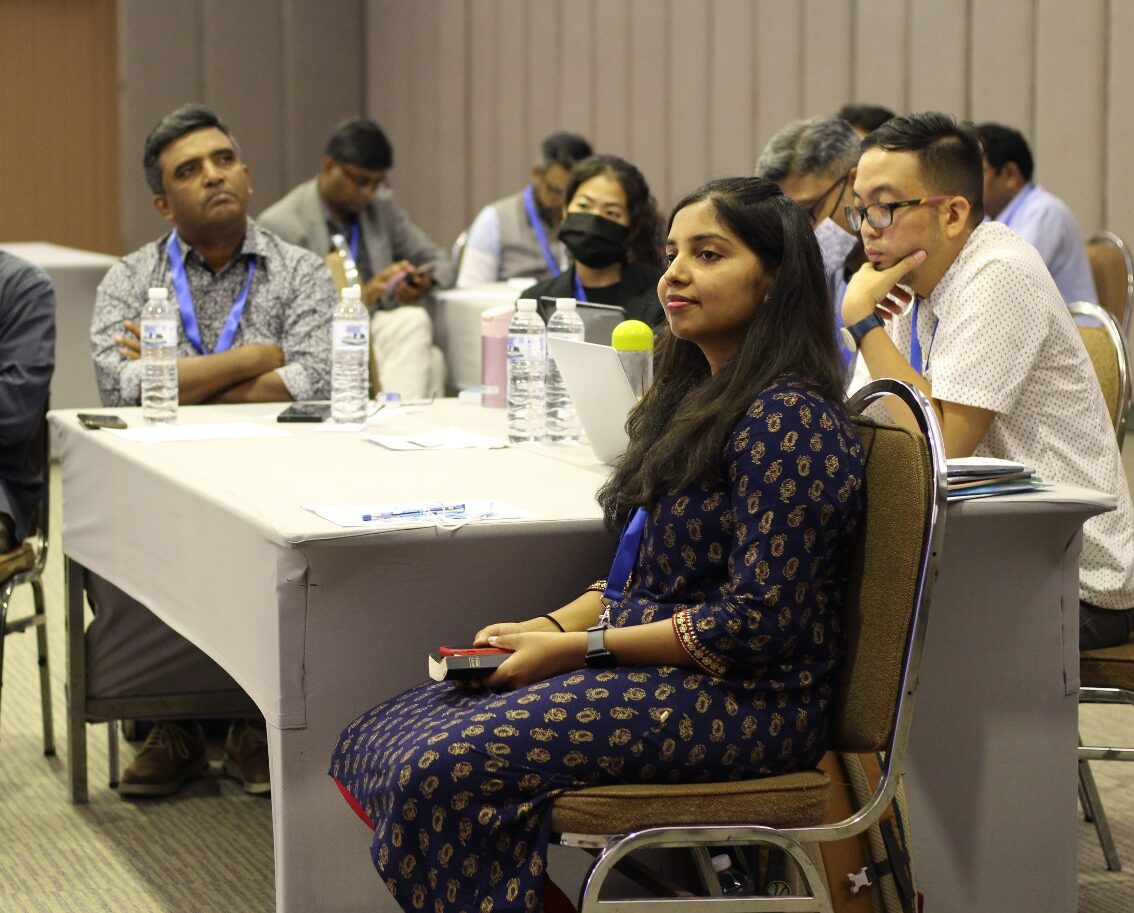
From 17–21 October, over six hundred Christian leaders from more than twenty countries in Asia gathered in Thailand for the Asia 2022 congress, ‘Rethinking Church and Mission: God’s Agenda for Today’. Participants represented various spheres of ministry, including church leaders, pastors, organisational heads, and social entrepreneurs.
Asia constitutes nearly 60 percent of the world’s population, hence a gathering like this, especially in a post-Covid environment, was historic in more ways than one. ‘The congress has come at an opportune time in history connecting Christian leaders together with the purpose of seeing a church and mission movement from our unique Asian context,’ says David Ro, the chair of the congress and the Lausanne Movement’s regional director for East Asia.
The Asia 2022 congress took place against the backdrop of a global church gearing up for the Fourth Lausanne Congress on World Evangelization, taking place in Seoul in 2024. ‘The Fourth Lausanne Congress will be of the global church, by the global church, and for the greatest needs and opportunities of our global society,’ said Michael Oh, Lausanne’s global executive director and CEO, in his opening remarks at the congress.
‘Ultimately Seoul 2024 will be about action. Global collaborative partnerships informed by research, inspired by the Holy Spirit, and catalysing blessed change in the world. Seoul 2024 will not be a triumphalist gathering. We will repent of our isolation and competition and we will renew our commitment to a truly comprehensive, coordinated, and collaborative global mission.’
A ‘comprehensive, coordinated, and collaborative’ vision of mission was also the main thrust of Asia 2022. The first evening began with a time of worship, followed by a cultural dance and art performance by students of a Christian school in Thailand. David Ro then gave a glimpse of the journey that started in 2018 to build up to the congress, which was initially planned for 2020 but was postponed due to Covid. Then, in the pure Thai tradition of the roll of drum beats, the heads of organisation of the four co-hosts officially commenced the congress.

The congress was a combination of plenary talks, Bible expositions, and regional teams leading in worship. There were also ample opportunities for meaningful reflection and discussion in small groups of 6-8 delegates around each table, accompanied with times of prayer both in small groups as well as congregationally.
The Bible exposition followed a theme each day from John 15, encouraging the delegates toward the beautiful practice of abiding in Christ, both individually and as a body. Each of the four expositions focused on a particular call of Jesus for believers in Asia.
Patrick Fung, general director of OMF and programme director for the Lausanne Movement’s upcoming Seoul 2024 congress, spoke on Jesus’ call to unity and loving one another. ‘Persecution never kills the church, but a diluted gospel kills the church,’ he said—an apt word for a continent that struggles both with severe persecution in some regions as well as materialism and false gospels in other regions.

Havilah Dharmaraj’s exposition was about Jesus’ call to obedience. ‘Loving each other will always involve laying down something,’ she said. ‘What would we as Asian leaders need to lay down to truly obey the command of loving one another?’
Jesus’ call to intimacy was expounded upon by Dick Eugenio. He reminded the church in Asia that ‘Jesus invites the last, the least, and the lost into intimacy and friendship with him.’ Finally, Eiko Takamizawa concluded the expositions with Jesus’ call to bear fruit, saying, ‘When we experience impossible situations, God intervenes.’
The Asia 2022 congress also saw a variety of plenary speakers from all over Asia, sharing and teaching insightful perspectives on church and mission, and encouraging delegates to think and reflect on all that God might be doing in the world.
Plenary speakers included Chadwick Mohan, Jason Young, David Doong, Blessing Sarangany, Angie Ng, Joseph Liow Chin Yong, David Yeghnazar, Mangalman Maharjan, Kisung Yoo, Asiri Fernando, Yoshiyuki Nishioka, Chansamone Saiyasak, and Finny Philip. Together they covered a variety of issues and pressing contents adding substance to the relevant needs of the Asian church at large.
In totality the plenary sessions covered what churches need to do differently to continue being salt and light on the Asian continent. ‘The way forward for churches is not a model,’ said Chadwick Mohan, Lausanne’s regional director for South Asia. ‘The way forward is to go back and embrace the philosophy of Christ as seen in Scripture.’
Important aspects like engaging with the culture around us without forgetting our spiritual identities and the need to embrace younger leaders and serve alongside them were some critical topics that were discussed. Blessing Sarangapany in particular reminded participants that ‘intergenerational collaboration is not ministry to young people or for young people, but it is ministry with young people.’

One of the highlights of the congress was hearing mission stories from suffering churches in various regions in Asia, particularity Iran and Nepal. These stories inspired delegates and filled them with hope, faith, and strength to serve God with much spiritual fervour in their own cities and countries. ‘Intercession ignited church growth in Iran, intercession will sustain it,’ said David Yeghnazar, whose talk was exemplary in reigniting an attitude of expectancy that God can work in ways and means beyond what we can fathom.
During the congress, Christians in Asia were called to deeply and energetically engage with the prevailing culture through meaningful contextualisation without compromise. ‘The kingdom of God moves at a speed of trust and transparency,’ said Jason Young, speaking for Christians in the marketplace and their role in mission. He continued, ‘There are no super Christians—the call is to all. There are many entrepreneurial giftings waiting to be activated in people in the marketplace.’
Congress delegates were also able to spend time with their regional counterparts, which fostered meaningful conversations and deliberations around missionary work in their regions, as well as opportunities to exchange ideas and mutually inspire each other by stories of what the Lord is doing around the world.

As Asiri Fernando put it, ‘The pursuit of holiness must happen alongside one another.’ Praying together, worshiping together, discussing together, and sharing meals together allowed the participants to press into gospel unity. The congress provided the tools and resources for churches in Asia to rethink how we do church and mission, ensuring we listen keenly to the voice and agenda of God.

